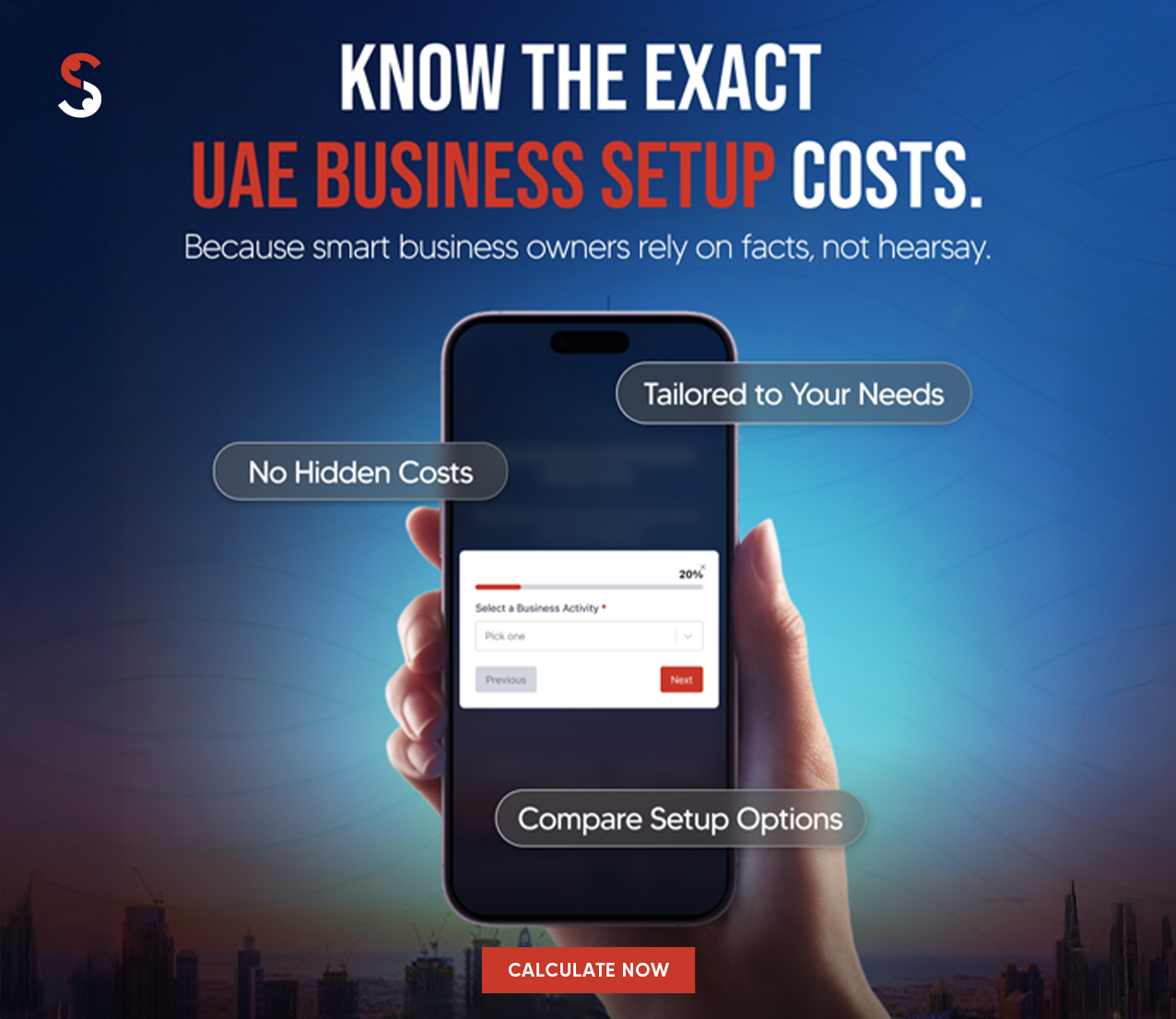Dubai has quickly grown into one of the world’s leading tech and startup hubs. In recent years, the city has attracted billions in tech investments and continues to rank among the top choices for digital entrepreneurs. In fact, the UAE’s digital economy is expected to reach over AED 140 billion by 2031, showing just how fast this sector is growing.
With its strong digital infrastructure, world-class connectivity, and business-friendly environment, it’s no surprise that more people are searching for how to start an IT company in Dubai.
What makes Dubai so ideal for IT businesses? For starters, zones like IFZA, Dubai Internet City and Dubai Silicon Oasis offer 100% foreign ownership, zero corporate tax (within a threshold), and full profit repatriation. These zones are home to tech giants like Google, Microsoft, Oracle, and thousands of startups, creating an environment where innovation thrives.
The government is also heavily invested in the future of tech. Initiatives like Smart Dubai aim to turn the city into one of the smartest in the world, using AI and digital services to improve daily life for residents and businesses. With goals set for 2030 and beyond, Dubai is clearly betting big on technology.
So, if you’re planning for IT company setup in Dubai, there’s never been a better time or place.
Why Dubai is Ideal for IT Businesses in 2026?
If you’re thinking about launching a tech business, Dubai is one of the best places in the world to do it. Here’s why:
- Tax Advantages: Dubai offers 0% personal and corporate tax in most zones (with some exceptions under the new corporate tax law if income crosses AED 375,000). Plus, there are no restrictions on repatriating profits, making it easier for entrepreneurs to grow their business and keep their earnings.
- No Overregulation in the IT Sector: Unlike some global hubs, Dubai doesn’t drown IT businesses in red tape. For most tech activities, you don’t need external approvals (e.g., no DTCM or health authority clearance like tourism or clinics would require). This lets you launch and adapt faster, which is crucial in IT.
- Easy Fundraising & Access to VCs: Dubai is now home to over 100+ active VC firms and angel networks, including BECO Capital, Shorooq Partners, and Crescent Enterprises Ventures. IT startups with strong models are getting funding faster than ever before, especially those in cloud, fintech, cybersecurity, and SaaS.
- Tech-Friendly Free Zones: Dubai’s tech-focused Free Zones like DIC, DSO, and DMCC are designed for IT businesses, offering 100% foreign ownership, zero customs duties, simplified visa processing, and immediate access to a collaborative tech community.
- Easy Setup & Licensing: With the right guidance, setting up an IT company in Dubai can be done in just a few days. The process is straightforward, and there are tailored packages for tech startups.
- Global Connectivity: Being based in Dubai gives you direct access to the regional headquarters of Google, Oracle, Microsoft, SAP, Cisco, and others. Events like GITEX Global, STEP Conference, and AI Everything happen right here. These are prime grounds to form partnerships, pitch, and gain clients from day one.
Key Insights About the UAE IT Sector Market in 2026
The IT industry in the UAE is booming in 2026, and it’s only getting stronger. Here are some important highlights that show just how fast things are moving:
- The UAE’s overall tech (ICT) market is worth USD 52.2 billion in 2025 and is expected to grow to USD 85.2 billion by 2030.
- Revenue from IT services alone is about USD 3.7 billion in 2025 and is expected to reach USD 4.81 billion by 2030.
- IT outsourcing, where companies hire others to handle tech support, software, etc., is also growing fast, hitting USD 1.5 billion in 2025.
- The cloud market in the UAE is huge, it’s worth around USD 12.84 billion in 2025, and is set to jump to USD 45.4 billion by 2030.
- Under the UAE AI Strategy 2031, the country is building one of the world’s largest AI data centres in Abu Dhabi.
- Dubai and Abu Dhabi are becoming “smart cities” with tech like 5G, IoT, and edge computing being used in everything from transport to energy.
- Big tech companies like Amazon (AWS), Microsoft, Oracle, and Huawei are investing heavily (over USD 10 billion) in local cloud and data centres. That means faster and safer digital services for businesses.
What Kind of IT Services Can You Offer in Dubai?
Dubai offers a wide range of approved IT and tech-related business activities that you can include under your company license. Here are some of the most popular and in-demand options:
- Software Development: Build and sell desktop software, SaaS products, or customised enterprise solutions.
- Web & Mobile App Development: Design, develop, and maintain websites or mobile applications for clients or your own startup.
- IT Consultancy Services: Advise businesses on IT strategy, digital transformation, systems integration, or cloud migration.
- Cybersecurity Services: Offer network security, data protection, penetration testing, or managed security solutions.
- Artificial Intelligence (AI) Solutions: Develop or implement AI-powered tools, including chatbots, machine learning models, and automation software.
- Blockchain Development: Create blockchain apps, smart contracts, or Web3 platforms—especially relevant in Free Zones like DMCC or DSO.
- Cloud Services & Hosting: Provide cloud infrastructure, storage, server hosting, or managed cloud support for businesses.
- IT Infrastructure & Networking: Set up IT systems, hardware installation, network cabling, and system maintenance for organisations.
- Digital & Technology Training: Run certified courses or workshops in areas like coding, cybersecurity, AI, or digital marketing.
- E-commerce Tech Solutions: Develop and manage e-commerce platforms, plugins, payment gateway integration, and backend support.
How to Choose the Right Jurisdiction for Your IT Business in the UAE?
Before launching your IT company in Dubai, selecting the appropriate jurisdiction is a critical first step, as it directly impacts ownership, operational freedom, tax obligations, and your potential client base. Your primary options are Mainland, Free Zone, and Offshore setups, each designed for different business objectives.
A. Mainland
- A Mainland company, licensed by the Department of Economic Development (DED), offers the freedom to operate directly across the entire UAE market and internationally. This jurisdiction is essential if your goal is to secure contracts with government entities or large UAE-based corporations.
- Key features include the ability to trade freely within the local market, but it requires leasing a physical office and securing DED approval. Profits exceeding AED 375,000 are subject to a 9% corporate tax.
- This structure is ideal for IT consultancies pursuing government projects, large-scale software providers, and companies planning to hire a significant local workforce.
B. Free Zone
- A Free Zone provides a specialized ecosystem with benefits like 100% foreign ownership, no local sponsor, and a streamlined setup process with flexible office solutions, from shared desks to dedicated offices.
- While offering significant tax benefits, including 0% corporate tax within specific limits, its primary trade-off is the inability to directly conduct business with the UAE mainland without engaging a local distributor or establishing a mainland branch.
- This makes Free Zones like Dubai Internet City (DIC), Dubai Silicon Oasis (DSO), and DMCC Tech Hub perfect for export-focused tech firms, startups, and businesses that prioritize ownership and tax advantages while primarily serving international or free zone clients.
Also Read: Free Zone vs. Mainland: Detailed Explanation
C. Offshore
- An Offshore company is designed for international business activities and is not permitted to trade within the UAE. Established in jurisdictions like JAFZA Offshore or RAK ICC, it is used for holding assets, protecting intellectual property, billing international clients, or managing global teams remotely.
- While it allows for a corporate bank account in the UAE, it requires no physical office and offers no employee visa eligibility.
- This option is best suited for IT businesses that need a holding entity for intellectual property or a corporate vehicle for international transactions without a physical operational presence in the UAE.
Process to Register an IT Company in Dubai
Setting up an IT business in Dubai involves a few key legal and administrative steps. Here’s a step-by-step guide to help you get started:
- Step 1: Define Your Business Activity & Structure: Choose your main IT services (e.g., software development, cybersecurity, consultancy) and decide on the legal structure – LLC, sole establishment, branch office, or free-zone entity.
- Step 2: Choose the Ideal Jurisdiction: Select whether to register in the Mainland, a Free Zone, or Offshore based on your business purpose – local clients, global clients, or IP-holding, respectively.
- Step 3: Reserve Company Name & Trademark: Apply for a trade name that complies with UAE naming rules (unique, business-related, no offensive words) within your chosen jurisdiction.
- Step 4: Get Initial Approvals: Submit your business activity, trade name, passport copies, and optionally a business plan to obtain initial no-objection approval from the DED (Mainland) or Free Zone authority.
- Step 5: Secure Office Space: The office space requirement differs significantly: a Mainland company must rent and register a physical office with an Ejari contract, whereas a Free Zone business can opt for flexible solutions—from shared desks to dedicated offices—based on its team size and visa needs.
- Step 6: Get External Approvals (if required): Some specific IT activities may need approvals from regulatory bodies such as the TRA (Telecommunications and Digital Government Regulatory Authority) for certain tech operations.
- Step 7: Obtain Your Trade License: After document review and payment, collect your official IT company license: DED trade license for Mainland or relevant license (e.g., Service License) from Free Zone authorities.
- Step 8: Open a Corporate Bank Account: With your license and company documents in hand, open a business bank account in the UAE with banks like Emirates NBD, Mashreq, HSBC, or Citibank.
- Step 9: Apply for Visas & Health Cards: Sponsor residence visas for investors, employees, and dependents, based on your office space and jurisdiction limits. Mainland companies can sponsor more visas.
By following these steps and seeking expert guidance, you can successfully register your IT company in Dubai and begin your business operations.
What Documents are Required to Start an IT Company in Dubai?
To start your IT company in Dubai, you’ll need to submit a few essential documents. Here’s a quick list to help you prepare:
- Passport copies of all shareholders/partners
- UAE visa or entry stamp page
- Passport-sized photographs (white background)
- Proposed company name(s)
- Description of IT business activities
- No Objection Certificate (if on an existing UAE visa)
- Office address or tenancy contract (Ejari for Mainland / flexi-desk for Free Zone)
- Memorandum of Association (for Mainland setup)
- Completed application forms from the licensing authority
What is the Cost of Starting an IT Company in Dubai?
Starting an IT business in Dubai can cost anywhere from AED 12,000 to AED 60,000 or more, depending on the business location (Mainland, Free Zone, or Offshore), the size of your team, and the type of office you choose.
Setting up your IT company in a Free Zone is one of the most cost-effective options. The total setup cost typically ranges between AED 12,000 to AED 30,000. Free Zones like IFZA, Meydan, SPC, and DTEC offer some of the most affordable options for IT startups, especially for small teams or solo founders.
Mainland IT company setup generally costs more, but gives you full access to the UAE market. The initial setup cost can start around AED 25,000 and go up to AED 60,000 or more, depending on office rent, number of visas, and additional legal steps.
Common Challenges and How to Overcome Them
Setting up an IT company in Dubai can come with challenges. Here are the most common ones and how to address them:
Choosing the Right Jurisdiction:
- Issue: Deciding between Mainland, Free Zone, or Offshore can be confusing due to differing benefits and limitations.
- Solution: Assess your target market. Choose Mainland for local UAE clients, Free Zone for tax benefits and global operations, or Offshore for remote businesses. Consult experts like Shuraa for tailored advice.
High Office Rental Costs:
- Issue: Mainland setups require physical offices, which can cost AED 50,000+ annually in prime areas.
- Solution: Opt for Free Zones with flexi-desk options (starting at AED 2,000/year) or shared spaces in DTEC or IFZA to minimize costs.
Regulatory Compliance:
- Issue: Navigating UAE’s licensing, visa, or tax rules (e.g., 9% corporate tax for profits over AED 375,000) can be complex.
- Solution: Work with a business setup consultant like Shuraa to ensure compliance and timely renewals. Stay updated on UAE’s corporate tax laws via the Federal Tax Authority. Consult experts like Shuraa Tax for tailored advice.
Finding Local Talent:
- Issue: Hiring skilled IT professionals in a competitive market can be tough for startups.
- Solution: Use platforms like Bayt, LinkedIn, or Dubai-based job fairs to recruit from the UAE’s diverse talent pool. Offer competitive packages to attract top talent.
Accessing UAE Mainland Clients from a Free Zone
- Issue: Free Zone companies cannot directly serve Mainland clients without a distributor or branch.
- Solution: Set up a Mainland branch or partner with a local distributor. Alternatively, focus on international or online clients to leverage Free Zone benefits.
Case Studies: How AWS Is Powering IT Success in Dubai
When it comes to big names in tech choosing Dubai, Amazon Web Services (AWS) stands out as a great example. Not only did AWS launch a local region in the UAE, but it’s also helping Dubai-based companies scale faster, cut costs, and operate smarter.
Let’s take Sharaf Retail, a major retail group in Dubai. They partnered with AWS and a local cloud expert, Zero&One, to move their entire IT infrastructure to the cloud. What’s impressive is that the migration took just five months, something that could take years for large companies.
Key results:
- 65% reduction in infrastructure costs
- 50% lower IT staff expenses
- 75% faster store launches (cutting down from 30 days to just a few)
- Improved data security, backups, and UAE-compliant cloud hosting
In 2022, AWS launched its own cloud region in the UAE, which includes three availability zones. This is more than just a tech upgrade; it’s a game changer for IT startups and digital businesses in Dubai. Here’s what it means:
- $5 billion investment committed through 2036
- AED 41 billion expected to be added to the UAE’s GDP
- 6,000+ full-time jobs supported annually in tech, data centres, construction, and telecom
- Faster and more secure cloud services, with local data compliance
If you’re thinking about starting an IT company in Dubai, the AWS success story shows just how ready the city is for tech growth.
Tips for Success in Dubai’s IT Market
- Leverage Free Zone Benefits: Choose a free zone like DIC or DSO for networking with tech giants and startups.
- Attend Tech Events: Participate in GITEX Global, STEP Conference, or AI Everything to connect with clients and investors.
- Focus on High-Demand Sectors: Prioritise AI, cybersecurity, cloud services, or blockchain for faster growth.
- Hire Local Talent: Tap into the UAE’s diverse, skilled workforce through platforms like Bayt or LinkedIn.
- Stay Compliant: Ensure timely license renewals and compliance with the UAE’s corporate tax laws.
How Shuraa Can Help You Set Up Your IT Company!
IT company in Dubai is a smart choice. The city is full of opportunities, support for tech businesses, and a fast-growing digital economy. The industry has picked up pace in recent years and is now about to reach its prime. All you need to do now is make another great choice for a convenient business setup in the UAE.
At Shuraa Business Setup, we can guide you through everything – choosing the right Free Zone or Mainland option, handling your license, setting up your company, getting visas, and taking care of all the paperwork.
Book a free consultation today and let Shuraa make your IT business in the UAE simple and stress-free.
Frequently Asked Questions (FAQs)
1. How Can I start an IT company in Dubai?
To start an IT company in Dubai, you must first choose between a mainland or free zone jurisdiction, select your business activities and a legal structure, then reserve a trade name and apply for initial approval. After gathering the necessary documents, you’ll secure an office space, obtain the final business license, and open a corporate bank account. Finally, you can apply for visas, register for VAT, and officially launch your company.
2. Can I fully own my IT company in Dubai as a foreigner?
Yes, you can own 100% of your business in both Free Zones and most Mainland setups (no local sponsor needed for most IT activities).
3. Which are the best Free Zones for IT companies in Dubai?
The best free zones in Dubai for IT companies are Dubai Internet City (DIC), ideal for digital services and software development, Dubai Silicon Oasis (DSO), which specializes in deep tech and R&D, and the Dubai Multi Commodities Centre (DMCC), which offers a broader range of activities including fintech and crypto. Other excellent options include the cost-effective RAKEZ (Ras Al Khaimah Economic Zone) and the established Jebel Ali Free Zone (JAFZA).
4. Can I provide services to UAE clients with a Free Zone license?
Not directly. You’ll need a mainland branch or local distributor to serve UAE Mainland clients legally. Free Zone licenses are ideal for international or online services.
5. Can freelancers or solo founders open an IT company in Dubai?
Yes! Many Free Zones offer solo founder licenses with 100% ownership and a flexi-desk workspace.
6. What are the best banks for IT businesses in Dubai?
Emirates NBD, Mashreq, HSBC, and Citibank offer business-friendly accounts with online banking and multi-currency options.
7. Is a physical office mandatory?
Mainland setups require a leased office. Free zones offer flexi-desk options, while offshore setups don’t need a physical office.
8. What are the visa limits for IT companies?
Free zone visa quotas depend on office size (e.g., 1–3 for flexi-desk). Mainland companies can sponsor more visas based on office space.
9. How long does it take to set up an IT company in Dubai?
Setting up an IT company in Dubai can take as little as 7-10 working days for a Free Zone company and potentially up to 3-5 weeks for a Mainland company.
Disclaimer: The information in this post is for general guidance only and may change due to updates in government policies or regulations.










